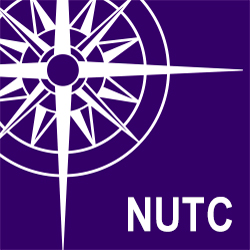
Northwestern University Transportation Center presents:
"The 4th National Climate Assessment: Maintaining Hope While Assessing the Science"
Donald J. Wuebbles
University of Illinois
ABSTRACT:
As Volume I for the 4th National Climate Assessment, the Climate Science Special Report (CSSR) has been developed to provide a comprehensive assessment of the science underlying the changes occurring in the Earth’s climate system, with a special focus on the United States. CSSR serves as the scientific foundation for Volume II of NCA4, which is an assessment of climate-related impacts, risks, and adaptation in the United States. Volume II is scheduled for release in late 2018.
Over 50 scientists and other experts contributed to the writing of the CSSR assessment, including representatives from the Federal government, national laboratories, universities, and the private sector. The CSSR was subjected to 6 stages of rigorous review, including by Federal agencies, the general public, and an external expert review panel convened by the National Academies of Sciences.
New observations and new research have increased our understanding of past, current, and future climate change. The CSSR confirms prior assessments in concluding that the climate on our planet, including the United States, is changing, and changing rapidly. Observational evidence for a changing climate abounds, from the top of the atmosphere to the depths of the oceans. Documented changes include surface, atmospheric, and oceanic temperatures; melting glaciers; disappearing snow cover; shrinking sea ice; and rising sea level. Many lines of evidence demonstrate that human activities have been the dominant cause of the observed warming since the mid-20th century. Changes in the characteristics of extreme events are particularly important for human safety, infrastructure, agriculture, water quality and quantity, and natural ecosystems. Some extremes have already become more frequent, intense, or of longer duration, and many extremes are expected to continue to increase or worsen, presenting substantial challenges. Heatwaves have become more frequent in the United States since the 1960s, while extreme cold temperatures and cold waves have become less frequent. Heavy rainfall is increasing in intensity and frequency across the United States and globally. These and other trends in severe weather are expected to continue. The Earth’s climate is projected to continue to change over this century and beyond. As a result, global average sea levels are expected to continue to rise. This presentation provides an overview of the findings from the CSSR, while also touching on the need for maintaining hope.
SPEAKER BIO:
Donald J. Wuebbles is the Harry E. Preble Professor of Atmospheric Science at the University of Illinois where he has been since 1994. He is also a Presidential Fellow at the University of Illinois, with the aim of helping the university system develop new initiatives in urban sustainability. From 2015 to early 2017, Dr. Wuebbles was Assistant Director with the Office of Science and Technology Policy at the Executive Office of the President in Washington DC, where he was the White House expert on climate science. He was Head of the Department of Atmospheric Sciences at the University of Illinois for many years. Dr. Wuebbles led the development of the School of Earth, Society, and Environment, and was its first director. While Department Head, he led the development of two highly successful undergraduate programs, one in Atmospheric Sciences, and the other, an interdisciplinary major, in Earth, Society and Environmental Sustainability (ESES).
Dr. Wuebbles is an expert in atmospheric physics and chemistry, with over 500 scientific publications related to the Earth’s climate, air quality, and the stratospheric ozone layer. However his work goes well beyond that through providing analyses and development of metrics used in national and international policy and in developing analyses for understanding climate impacts on society and ecosystems, plus potential resilience and societal responses. He has co-authored a number of international and national scientific assessments, including several of the climate assessments led by the Intergovernmental Panel on Climate Change (IPCC), that resulted in IPCC being awarded the Nobel Peace Prize in 2007. He was a leader in both the 2013 IPCC international assessment of climate science and the 2014 3rd U.S. National Climate Assessment. More recently, he has co-led the Climate Science Special Report, the 477-page first volume of the 4th U.S. National Climate Assessment published in November 2017 that assesses the science of climate change. Dr. Wuebbles has also led special assessments of the impacts of climate change on human society and ecosystems for the U.S. Midwest, the Northeast, and a special assessment for the city of Chicago.
Dr. Wuebbles has received many awards, including the Cleveland Abbe Award from the American Meteorological Society, the Stratospheric Ozone Protection Award from the U.S. Environmental Protection Agency, and is a Fellow of three major professional science societies, the American Association for the Advancement of Science, the American Geophysical Union, and the American Meteorological Society.
Dr. Wuebbles has two degrees in Electrical Engineering from the University of Illinois (1970, 1972) and a Ph.D. in Atmospheric Sciences from the University of California, Davis (1983). Don and his wife, Barbara, have three sons and four grandchildren.
Audience
- Faculty/Staff
- Student
- Public
- Post Docs/Docs
- Graduate Students
Interest
- Academic (general)